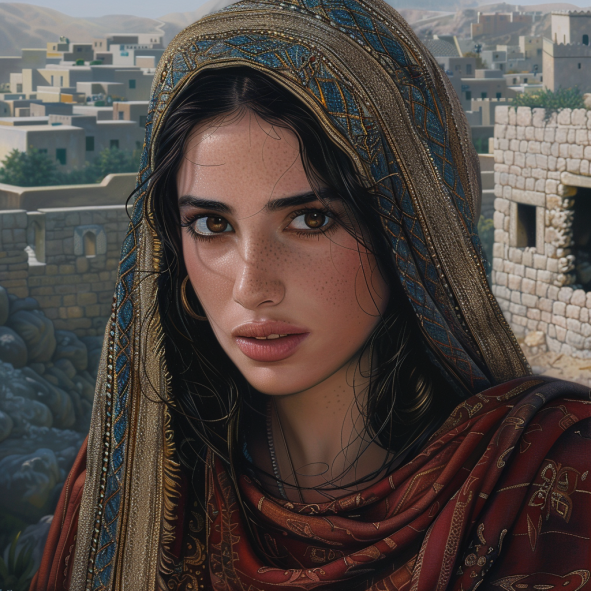Who was Dura in the Bible?
Wife of Job
The story of Dura
In Hebrew: דורה
Dura was a biblical figure mentioned in the Book of Daniel. He was the son of Nebuchadnezzar II, the king of Babylon, and the brother of Belshazzar. He was the governor of Babylon and was known for his loyalty to his father. Dura was a faithful servant of Nebuchadnezzar and was appointed to oversee the rebuilding of the city of Babylon. He was also responsible for the construction of the walls of Babylon and the rebuilding of the temple of Marduk. He was known for his loyalty to his father and his dedication to the rebuilding of Babylon. Dura is best known for his role in the story of the three Hebrews in the fiery furnace. He was the one who ordered the furnace to be heated seven times hotter than usual in order to punish the three Hebrews for their refusal to bow down to the golden image. Despite his orders, the three Hebrews were miraculously saved from the flames. Dura is remembered for his loyalty to his father and his dedication to the rebuilding of Babylon. He is also remembered for his role in the story of the three Hebrews in the fiery furnace.
Chat with DuraRelatives
Did you know?
How many times Dura was mentioned in the Bible?
Dura appears 3 Times in the Bible.
Where is the story of Dura begins in the Bible?
Dura Genesis Proverbs, Chapter 8, verse 18.
What is the meaning of the name Dura?
The name "Dura" can have different meanings and associations depending on cultural or linguistic contexts: 1. **Biblical Reference**: In the Bible, "Dura" is a plain in Babylon mentioned in the Book of Daniel where King Nebuchadnezzar set up a golden image (Daniel 3:1). It refers to a region and doesn’t have a personal name meaning. 2. **Arabic Origin**: In Arabic, "Dura" (or "Durra") can mean "pearl." It is used as a feminine name and conveys preciousness or beauty. 3. **Latin Origin**: In Latin, "Dura" means "hard" or "tough," derived from "durus." It is not typically used as a personal name in this context but might appear in historical or literary references. 4. **Indian Languages**: In some Indian languages like Sanskrit, "Dura" can mean "far" or "distant." Again, it's not commonly used as a name but could appear in poetry or literature. If you're referring to a specific cultural or linguistic context for the name "Dura," please let me know, and I can provide more detailed information.
What is the origin of the name Dura?
Latin
Frequently Asked Questions
Dura was a biblical figure mentioned in the Book of Daniel. He was the son of Nebuchadnezzar II, the king of Babylon, and the brother of Belshazzar. He was the governor of Babylon and was known for his loyalty to his father. Dura was a faithful servant of Nebuchadnezzar and was appointed to oversee the rebuilding of the city of Babylon. He was also responsible for the construction of the walls of Babylon and the rebuilding of the temple of Marduk. He was known for his loyalty to his father and his dedication to the rebuilding of Babylon. Dura is best known for his role in the story of the three Hebrews in the fiery furnace. He was the one who ordered the furnace to be heated seven times hotter than usual in order to punish the three Hebrews for their refusal to bow down to the golden image. Despite his orders, the three Hebrews were miraculously saved from the flames. Dura is remembered for his loyalty to his father and his dedication to the rebuilding of Babylon. He is also remembered for his role in the story of the three Hebrews in the fiery furnace.
Dura was mentioned 3 Times in the Bible.
Genesis Proverbs, Chapter 8, verse 18.


































































































































































































































































































































































































































































































































































































































































































































































































































































































































